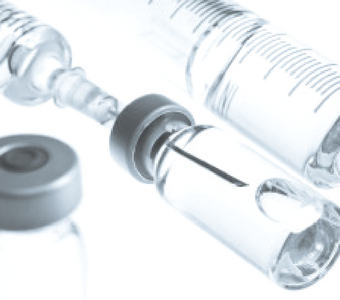Breaking news that health insurer, Oxford Health, will cover HP Acthar Gel (Acthar), looks like a major win for Questcor Pharmaceuticals (NASDAQ:QCOR), and the stock should rally once the news is properly interpreted by investors. In our prior article, we stated that with no Acthar growth off of the current base of sales, QCOR could trade in the mid-$20 range. Today’s news suggests that the base of sales is much more stable that previously thought, and that once physicians become accustomed to the new authorizations proposed by Oxford, use of the product may begin to show strong growth again. While Aetna’s final Policy Update is expected next week, the Oxford Policy Change suggests that not all health insurers will move to block patients from getting Acthar, and that Aetna could be one of the only health insurers that maintains a highly restrictive policy. In fact, it is possible that Aetna loosens its restrictions, and like Oxford, acknowledges that FDA-approved indications should be reimbursed, especially if patients are not getting relief from alternative treatments (if alternatives even exist). Importantly, Oxford is part of UnitedHealth Group (NYSE:UNH), which reimburses for the largest percentage of Acthar prescriptions. The link to the Oxford Policy Update can be seen here, and importantly, the insurance company deems Acthar MEDICALLY NECESSARY for several conditions including key indications like infantile spasm (IS), multiple sclerosis (MS), and nephrotic syndrome (NS). Essentially, the major changes are for initial approvals of the multiple sclerosis (MS) and infantile spasms (IS) indications, with doctors needing to review therapy for IS and MS patients in 4 weeks and 3 weeks, respectively, rather than the prior 3 month initial approval “without an MD review”. While the shorter intervals required for initial authorization and reauthorizations will create more steps in the process, we note that most patients are only on Acthar for a 2-3 week period anyway. Additionally, given that patients have already failed other therapies, physicians are likely to continue to be aggressive in making sure their patients have access to the drug. Meanwhile, these changes are not very meaningful, given the way Acthar has been prescribed, reimbursed, and used in the past. The real positive in the Oxford update is that prescriptions for NS have almost no restrictions once a patient has failed steroids, and we note that use in NS currently represents 40% of Acthar prescriptions, is growing at very high rates, and could become the biggest indication given that each prescription has the highest dollar value, on average, relative to other indications like MS and NS.
Incorrect Username And/Or Password
Please Complete Registration
Completing the following survey to access content
Register for FREE to access
Don't worry - this will only take a minute
Please Enter Your First Name.
Please Enter Your Last Name.
Please Enter A Valid Email.
Please Enter A Valid Password. Must Be At Least 8 Characters .
To continue with registration, you must agree to our terms of service
Already A Member? Sign In
Which Best Describes You?
Which Best Represents You?
Which Opportunities Interest You?
(Select All That Apply)
Please Select At Least One Interest From Each Row
Which Opportunities Interest You?
(Select All That Apply)
Please Select At Least One Interest
Which Opportunities Interest You?
(Select All That Apply)
Please Select At Least One Interest From Each Row
Which Opportunities Interest You?
(Select All That Apply)
Please Select At Least One Interest
A person who either:
Earned income that exceeded $200,000 (or $300,000 together with a spouse) in each of the prior two years, and reasonably expects the same for the current year,
OR
Has a net worth over $1 million, either alone or together with a spouse (excluding the value of the person’s primary residence).
Read More here.
I manage or have discretionary assets of
Please Select Your Asset Size
Registration Complete
You're all done! We've sent you a confirmation email that includes a verification link. To access the page you're interested in, check your email inbox(including spam folder) and click the verification link.
Four
Five
Please Confirm Your Email!
We've sent you a confirmation email that includes a verification link. To access the page you're interested in, check your email inbox and click the verification link.
If you cannot find it, be sure to check you "SPAM" or click "RESEND EMAIL" below.
Forgot your password?
Enter the email address associated with your account and we'll send you details on how to reset your password.
Reset Link Emailed
A email with details on resetting your password has been sent.
Your question is submitted. Our moderators are reviewing the question and will approve it shortly.
Downgrade Account
You are not logged in
Join now, it's free:
Member sign-in:
RESTRICTED ACCESS. PROPTHINK PREMIUM.
PROPTHINK PREMIUM.
Professional Edge
Proven Returns
Proprietary Access

Already A Member?Login

Professional Edge
Proven Returns
Proprietary Access
Already A Member?Login
Forgot your password?
Enter the email address associated with your account and we'll send you details shortly.
You're trying to access some of PropThink's Members-Only Content.
You can sign up for a FREE PropThink membership, unlocking significantly more of PropThink’s features, by clicking here. All it takes is an email address.
Better yet, try PropThink Premium. Click here to read more about the features of PropThink Premium, and get 50% off your first month!


